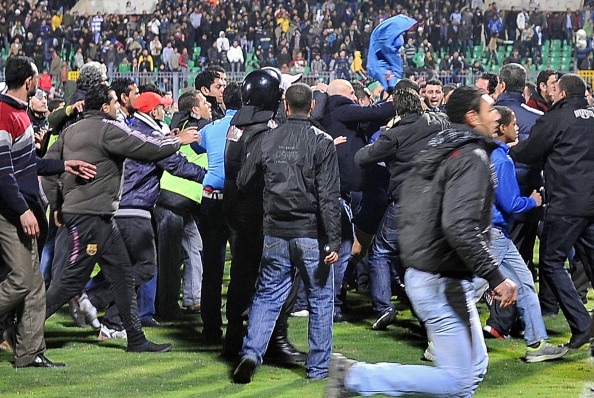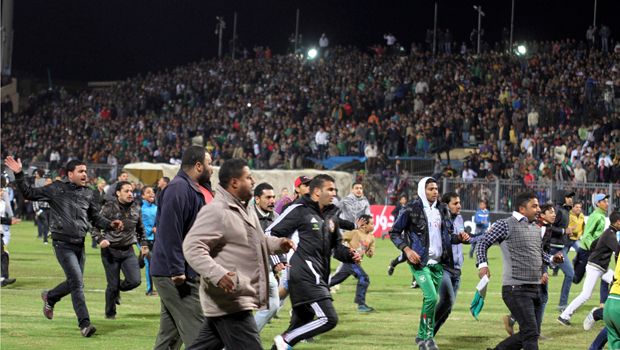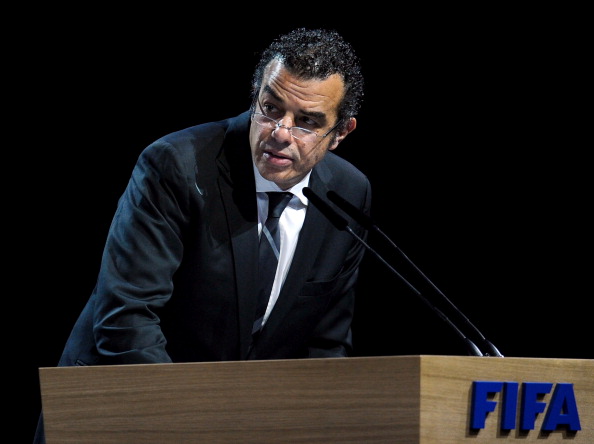December 13 – Speaking at the International Football Arena (IFA) conference in Japan, Khaled Mortagy, a board director of Egyptian champions Al-Ahly and the African qualifiers for the FIFA Club World Cup, gave a brutally honest presentation outlining the journey the game was taking away from the dark days of football corruption, Government interference and the scenes of shocking violence.
Later in the day, in their first competition since the violence of the Port Said Stadium massacre in February, where 72 fans tragically lost their lives, Al-Ahly played Brazil’s Corinthians in the FIFA Club World Cup semi finals.
Despite losing 1-0, the Egyptians sent a message across the football world that football is alive and kicking in North Africa.
But for a while it looked like football in North Africa had become another victim of the Arab Spring.
“In many countries, specifically Egypt, Tunisia and Libya, football suffered from the leaders and political figures becoming directly involved with sports.
“Football was used to keep people occupied, not to promote freedom, food, or shelter.
“Politics, influence, patronage and money became the driving forces behind the game,” said Mortagy.
North African football fans are known for their passion, and from the early days of the Arab Spring, the Ultras fan groups were active politically – much of their protest manifesting at football matches in a push for political and social change, not just a win on the pitch.

The Tunisian revolution burst through into the country from a football match.
Ultras were present and active in Cairo’s Tahrir Square from the start.
With the political activism came tragedy.
What started as a few pitch invasions at different matches ended with the tragedy of the Port Said stadium massacre.
“This is one of the worst disasters in the history of football,” said Mortagy.
“72 Al-Ahly fans lost their lives in a game against Al Masry.
“Whether the theory will ever be proven or not remains to be seen, but reports suggest that the Supreme Council of the Armed Forces (SCAF) and the police were behind the massacre.”
“Since then, football fans in Egypt have completely changed,” said Mortagy.
“Ultras groups refuse resuming football tournaments until the court reaches a verdict on the massacre.
“Football in Egypt has been postponed indefinitely.

“The Ultras are now a strong participant in the political scene, releasing all their energy there, since it is wildly believed that their friends lost their lives due to corrupt politics.”
With the increased involvement of fans in the revolution and politics of the country, has come a purging of the football governing bodies.
And, ultimately, the removal of influence of the political figures in football.
“The fans in Tunisia, Libya and Egypt demanded the end of the era for these people as they would no longer accept corrupt political figures running the game,” said Mortagy.
Clearly the game is emerging from political and social turmoil in North Africa.
“But Mortagy says the signs are that it is a positive rebirth with increased levels of patriotism for international teams and North African club sides, like Al-Ahly, competing competitively in confederation competitions.
“Egypt, Tunisia and Libya are all on top of their groups in World cup 2014 qualifiers,” said Mortagy.

